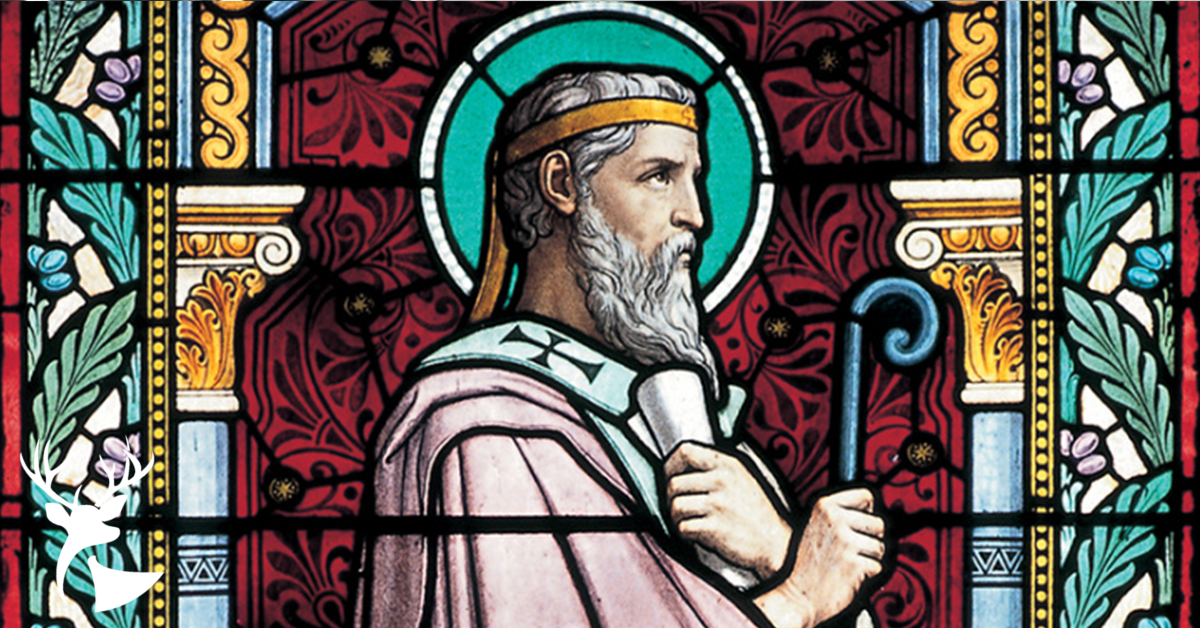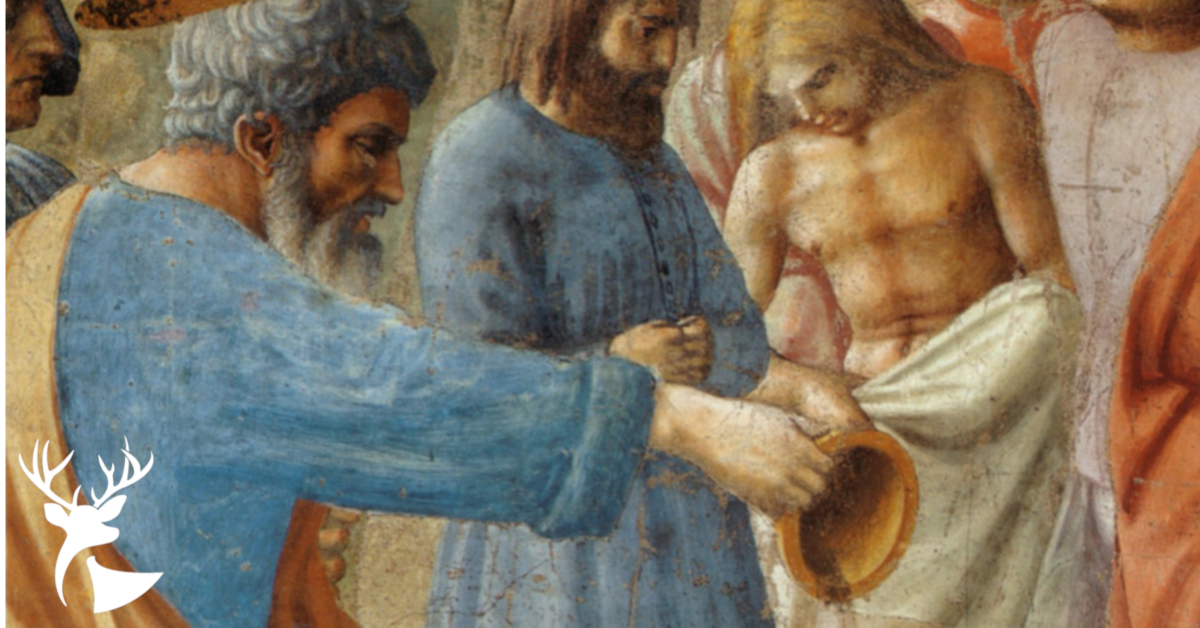
Pat Flynn is the author of The Best Argument for God (Oct, 2023) and How to Be Better at (Almost) Everything. He is a re-converted Catholic, philosopher (MA), writer, musician, fitness and martial arts enthusiast, and husband and father of five living in Waukesha, Wisconsin. He blogs at Chroniclesofstrength.substack.com and hosts the Philosophy for the People podcast with Dr. Jim Madden.
Pat Flynn is the author of The Best Argument for God (Oct, 2023) and How to Be Better at (Almost) Everything. He is a re-converted Catholic, philosopher (MA), writer, musician, fitness and martial arts enthusiast, and husband and father of five living in Waukesha, Wisconsin. He blogs at Chroniclesofstrength.substack.com and hosts the Philosophy for the People podcast with Dr. Jim Madden.
← Return to Essays| WritingsStay Connected!
Aquinas’s argument for the existence of God starts from his commonsense theory of existence for particular things. For Aquinas, existence is something things present in reality actually have or participate in. Existence, in other words, is that in virtue of which something is included in reality, or actually is, instead of not. To put the matter poetically, existence is what breathes reality into whatever things there are and whatever properties they have.
While Aquinas’s theory of existence comports with common sense and common language, it is not a position all modern philosophers take seriously, but to my mind, that is a problem with just those modern philosophers, not Aquinas.[1] Either way, I will assume Aquinas’s theory of existence is correct, and that our common parlance about existence – for example, when we say that our neighbor Bill exists – is generally meaningful in the way that it seems.
If that’s right, then when it comes to the existing things of our experience – cats, dogs, stars, our neighbor Bill, etc. – there are essentially two metaphysical elements or constituents (“parts”, crudely) to each of them. There is their essence element, or their “what-ness” element, and there is their existence element, or their “is-ness” element. Said differently, the essence element is a “what determination” whereas the existence element is a “whether determination” and for Aquinas the what-ness of the things of our experience does not guarantee their is-ness, or actual inclusion into reality. Aquinas has a collection of arguments to substantiate this thesis, which many call the real distinction between essence and existence, but for now we will just go with it, since again it comports with a commonsense interpretation of the very contingency of things, of the very fact that the things of our experience are but need not have been and could cease to be. Contingency fits well with the idea that nothing about what these contingent things are demands that they are.
Once these components are in place, Aquinas’s argument for God takes off swiftly. If there are things whose essence is really not their existence, then it is sensible – based upon a highly plausible principle of causality or sufficient reason[2] – to search for a cause of these things, even collectively. That is, something that can impart existence to the essence of any merely possible being, thus bringing it into reality. Aquinas argues that there is only one conceivable contender for such an entity, and that would be something whose essence just is its existence – a being of pure existence, as it were, or “existence alone.” This Aquinas calls God – ipsum esse subsistens, or self-subsisting existence.
Importantly, because this being is just pure existence it would be simple (not composed of parts, physical or metaphysical) and self-subsistent (existing in virtue of what it is and cannot not exist). From there, one can draw out the other divine attributes, including its:
- Uniqueness or inability to be multiply instantiated, since one would have to introduce a differentiating factor to have really distinct instances of such a being, and this would inevitably result in violating this being’s nature as simple or self-subsistent or both. Thus, it is not even theoretically possible for there to be more than one such entity of this sort; its nature prevents it.
- Primacy in the order of existential causality, since everything else which could exist only actually exists insofar as it is caused to exist ultimately by Existence Alone.
- Omnipotence, which follows from the previous point insofar as this being can bring about all that is inherently producible.
- Omniscience, because the world contains various patterns or forms of being (being patterned as a cat or our neighbor Bob, for example), and given a principle of proportionate causality (whatever is in the effect must somehow be contained in the ultimate cause or collection of causes), these patterns or forms must somehow be contained in or explained by fundamental reality, and if they are not each contained materially, which they cannot be since God is immaterial (all material things are composed; God is simple), they must be contained in an intentional way – that is, in the mind of God as possibilities of being. Thus, God not only knows all possibilities of being by knowing himself as pure existence (in cliché form, Gods know all things by knowing one thing, Himself) but knows all actualities of being in virtue of causing them to be. In short, God knows everything not because God “watches” it, but because God makes
- Perfect goodness, since for Aquinas goodness just is being under the aspect of perfection or desirability, whereas evil is always some lack in being that should otherwise be there when considering the perfection of some creature (think blindness, which is a privation within beings where sight is a perfection); thus, a being of pure existence would be a being of pure and perfect goodness.
… and so forth. This is merely a sketch since Aquinas has extensive argumentation for each of the divine attributes; he does not simply take any of them “on faith.” But because they are extensive, they can only be lightly reported, not rigorously defended, here. Still, hopefully enough has been shown how this reasoning process moving from a being of pure existence to God can be engaged, and that nothing about belief in God need rest in revelation alone, though Aquinas would undoubtedly contend that one is, or at least could be, justified in their religious belief even if they have no idea how philosophical arguments for God work or that there even were any philosophical arguments for God. But that is a conversation for another time (my forthcoming book The Best Argument for God keeps this conversation going).
[1] A defense of Aquinas’s wider metaphysical system, including his theory of existence, can be found in W. Norris Clarke’s The One and the Many. Clark does an able job showing how Aquinas’s theory of existence does real and important explanatory work in offering solutions across a wide range of perennial philosophical issues, from making sense of change, identity through time, the problem of the one and the many, and more. However, this system means accepting that existence is, at least in some instances, a first-level property of concrete individuals and not just (as many modern analytic philosophers assume) a property of concepts only. See: W. Norris Clarke, The One and The Many: A Contemporary Thomistic Metaphysics (South Bend, IN: University of Notre Dame, 2001). For another defense of Aquinas’s “thick” theory of existence, see Turner Nevitt, “How to Be an Existential Thomist,” The Thomist 82 (2018): 321-52.
[2] For a defense of the principle of sufficient reason (PSR), see Alexander R. Pruss, The Principle of Sufficient Reason: A Reassessment (Cambridge, UK: Cambridge University Press, 2010).
More Reading

Pat Flynn is the author of The Best Argument for God (Oct, 2023) and How to Be Better at (Almost) Everything. He is a re-converted Catholic, philosopher (MA), writer, musician, fitness and martial arts enthusiast, and husband and father of five living in Waukesha, Wisconsin. He blogs at Chroniclesofstrength.substack.com and hosts the Philosophy for the People podcast with Dr. Jim Madden.











